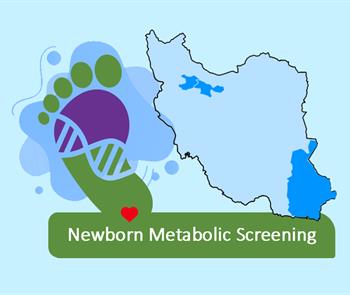Person-centered medical research center and genometabolomics
History of the center
Fetal Growth and Development Disorders Research Center was established in 2014 with the aim of designing and implementing applied research in the field of fetal growth and development disorders. In this regard, well-known professors and experts in the field of preventive medicine and person-centered medicine cooperate with this center. This center implements large national projects with colleagues from major universities in the country and the Ministry of Health.
Goals
Conducting research in order to find ways to improve the health of the future generation, developing and applying human knowledge in the field of science (fetal growth and development disorders), conducting basic epidemiological and clinical research in order to reform the country's healthcare service delivery system in order to respond to the needs of The society of collecting, organizing and classifying related documents, articles and documents and publishing them, training human resources of researchers in the field of (disorders and fetal growth and development), persuading, encouraging and employing researchers, striving to attract the attention and cooperation of relevant research and executive centers. Inside the country, scientific cooperation with research and educational centers of other countries and international organizations
vision
By carrying out the Omid project, the mutations that cause genetic diseases in the country are identified in a targeted and step-by-step manner. The native mutations of each disease are known for each specific geographical region. Endogenous mutations are identified in every ethnic group or ethnic group studied. By identifying the mutations that cause the disease, a definitive diagnosis is reached, and as a result, treatment management becomes more accurate and the patient is treated more carefully. Patients whose diagnosis was unknown are diagnosed with high certainty if their disease is genetic. Parents of affected people who refused to have another pregnancy due to the concern of the disease in the next child can have a child with high confidence. Relatives of affected people who are exposed to their children through consanguineous marriages will be able to be examined by the diagnosis of these mutations and be sure of having a healthy child or their worries will be resolved. The country's health system, knowing the data of the plan, takes preventive planning, and there is no need to repeat tests and use expensive techniques for people of every family or every region. Patients suffering from mucopolysaridosis or other genetic diseases should be informed about their mutation. The health system will use this data to plan mass prevention in the country. The RP eye disease, which could not be investigated in one place due to the great diversity of genes, is investigated in a mass manner, and the specific mutations of each region are identified, and family and regional prevention measures are carried out. Metabolic patients who, due to the multitude and variety of diseases, could not be definitively diagnosed in many cases, will be able to be investigated and prevented using the results of this project.


